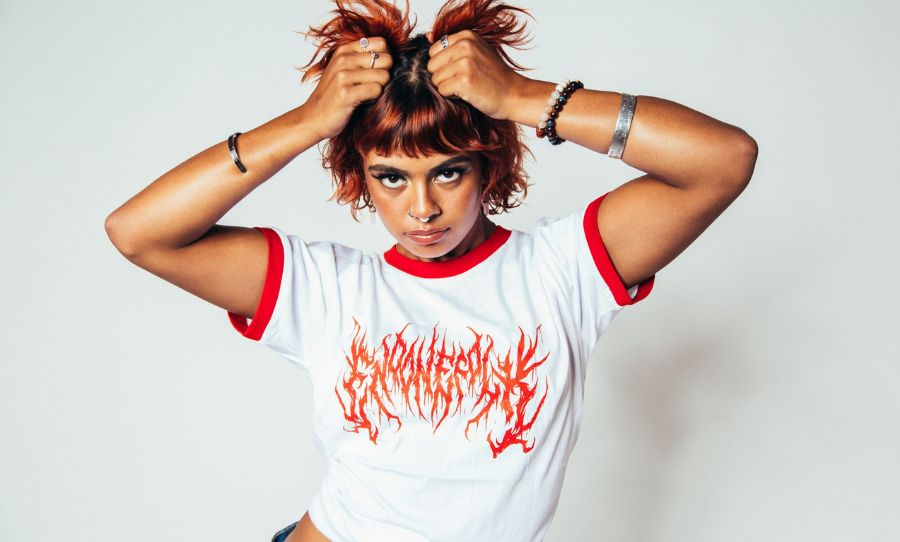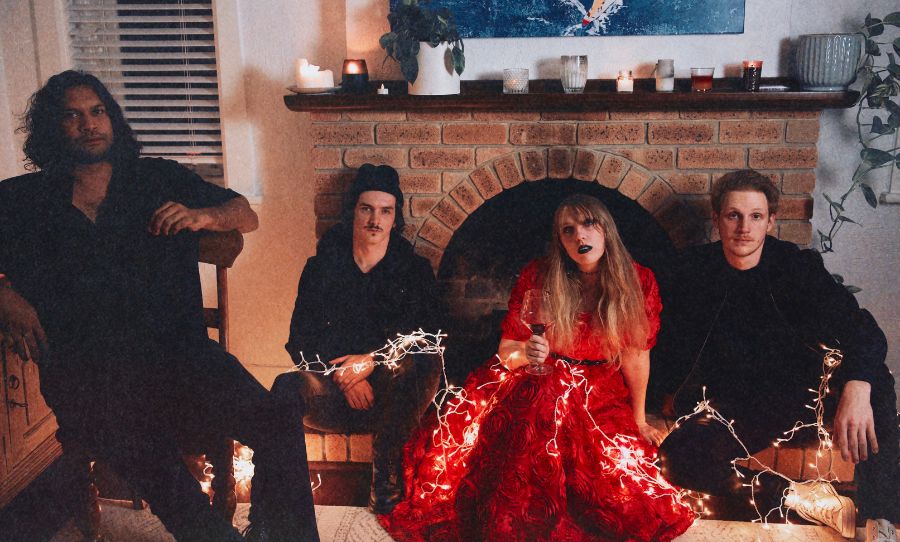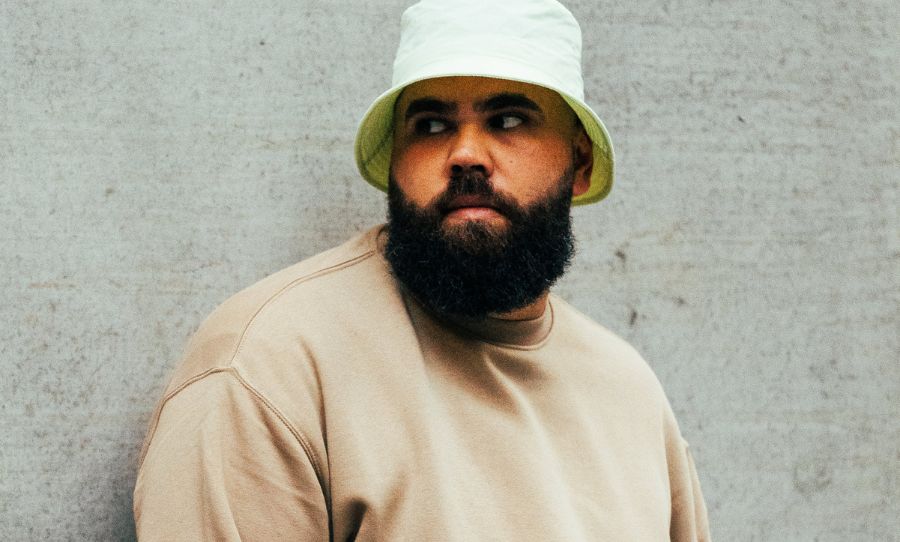Released in May, Spirit Bunny’s self-titled debut was a brilliant wash of ideas. The Brisbane trio’s long-player reveals a mess of styles, found instrumentation and catchy hooks. Yet at the heart of this album is a collection of well-recorded tracks built upon solid songcraft and earnest lyricism.
Catching up with drummer, sound engineer and occasional vocalist Cam Smith at BIGSOUND we talked band cohesion, the challenges of DIY and the impact of gentrification on the group’s inner-city home West End.
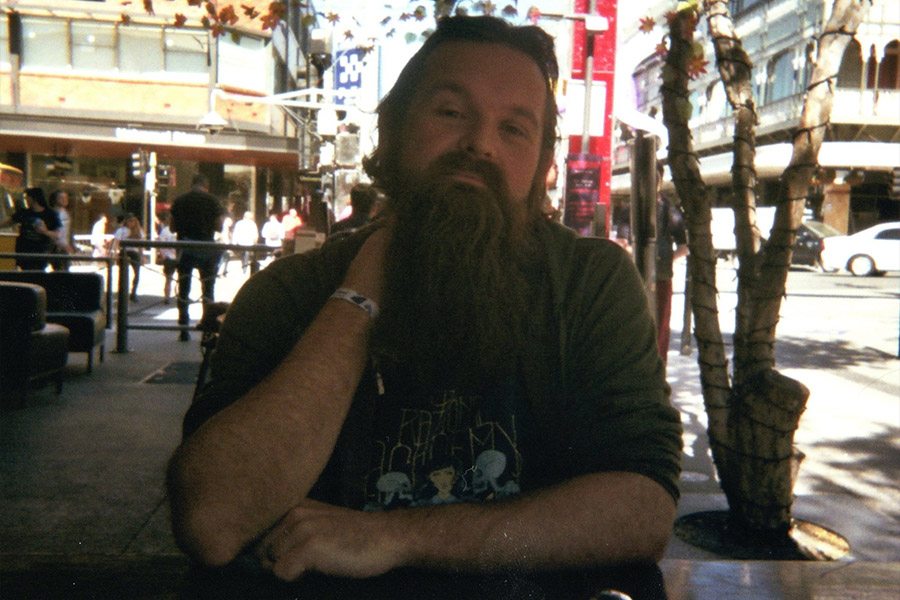
Navigating the Brisbane underground on a barge of circuit-bent keyboards, Spirit Bunny were undoubtedly one of the most imaginative acts at this year’s BIGSOUND.
HAPPY: All three members of SB share the role of vocalists and contributing songwriters. How would you describe your creative dynamic?
CAM: My role as a vocalist is pretty minimal. I think I sing on the record, on a couple of the large group vocals, but I don’t sing live – I’ve sung in other bands. But it’s all very democratic. I was talking before with one of the industry people, this whole conversation how people get really annoyed when someone says, “You can’t tell a bandmember what to play!” Like it’s sacrosanct! But I was like, “No, you can totally tell them what to play! You should.” Everyone should be telling each other what to play because that’s how you get a cohesive song and a cohesive band, a band that’s not jumping all over the place.
HAPPY: So there’s a bit of push pull between the band when it comes to the creative dynamic?
CAM: Yeah, definitely. Not in like a heated way, but I think when people are not protective of their parts, when everyone is open to having ideas, receiving ideas and nothing has to be a certain way that makes for a more interesting band and hopefully more interesting music.
HAPPY: The music of Spirit Bunny falls across as lot of styles and probably draws from a lot of influences as well. Is there a common thread that holds everything together?
CAM: I think it’s just one of those bands where it just came together and sounded the way it sounded. We didn’t necessarily know what we were going to do when we got together. We’d all played in bands previously, Joel being the common denominator. Joel and Kate had played in a couple of bands before and still play in another free-jazz, experimental thing called FEET TEETH.
I’ve played with Joel in a few things, one in particular was, again, this very free form improvised hip hop group. This was a few years ago. He went overseas but when he came back he wanted to restart that project – it was quite big, like an eight-person project. I was the only one who had the time and was keen to do it again and Kate was also interested so we just got together and the noise that we made was what Spirit Bunny is. That kinda defined what we do. We wrote a whole bunch of songs which basically defined the parameters of the band and are now running with it.
HAPPY: You are, at heart, a DIY band. Brisbane has very active DIY music scene, but it can be challenging for groups to get their music out there, past community radio station 4ZZZ. What motivates you as artists?
CAM: For me most of the bands I play don’t sound much alike at all. I’m a big fan of bands which you can hear the personality of the members, where people are allowed to express themselves within a common ground and common aesthetic that makes it kind of obvious when something is kind of the right thing for the band. Things might not always fit, sometimes they might need to bring in an idea that might have to find another outlet but they don’t feel like they’re getting left out. I’m a big fan of that and I think Spirit Bunny does that as well as anything else! You can listen to Spirit Bunny and get a pretty good sense of us as people.
HAPPY: Is it challenging getting your music to the world and staying afloat, even just being able to afford the petrol to go play a gig in an age where streaming seems to be pushing listeners more and more to a scant handful of superstar commercial artists?
CAM: It’s hard getting your music out there. I mean of all the bands playing BIGSOUND, we’re probably one of the least known.
HAPPY: I wouldn’t say that! But you are definitely closer to the heart of underground community.
CAM: We have friends and connections, but they’re definitely not from this world necessarily a lot of the time. We have lots of friends in other cities, we go and play with their bands. We’ve got our own little touring network and network of venues that we can play at, just from doing this which for me has been getting up towards 20 years – the other guys are a little bit younger! But only by a couple years. They’ve even got different people who they’ve worked with because they’re from a more experimental background where I’m slightly in towards punk and indie rock.
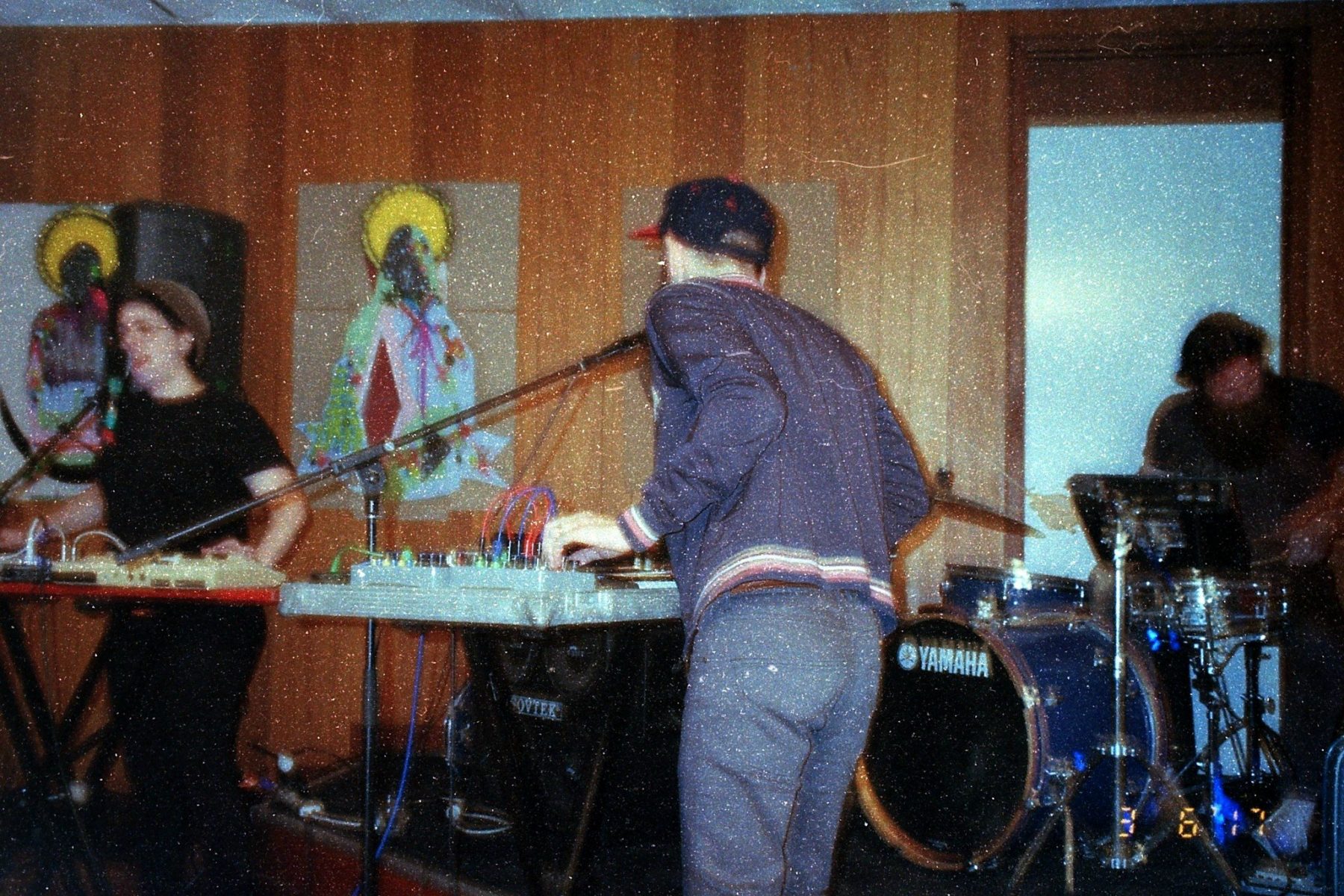
HAPPY: I think that’s interesting because Spirit Bunny bring in all these crazy elements but at the same time the core of the group is just good songwriting and some good songs.
CAM: We spend a lot of time writing and we sort through the chaff in terms of melodies, parts and structures. We don’t tend to write verse-chorus-verse songs. We’ve got a few like that, but not a huge amount.
HAPPY: You dropped an excellent debut LP earlier this year. How are you feeling about it now that it’s out there in the world?
CAM: I’m totally happy with it. I listen to it still! Not excessively but usually when you finish an album – I record them at my studio so I listen to them a lot – usually by the time you put it out you might listen to it a little but then you put it aside and don’t listen for a long time. But this one I can still listen too. I think a lot of it comes from it being such a collaborative thing. I don’t think we listen to it and think, ‘this is my song’. People may know each other’s parts better than their own sometimes but I can listen to it and I don’t think about the struggles of making it because the struggles were shared. It appeared out of all of us doing our thing so we all feel ownership but none of us feel like, “This is mine and I know how it works too well so I’m sick of it.” You can listen to it a slightly objective way.
HAPPY: If you could ever listen to any music objectively! A component of the record is addressing or at least venting some of the pressures of inner city living. In this sense Screaming Keys is exemplary. How do you think things issues of gentrification are impacting Brisbane’s musical community?
CAM: It’s interesting because we all live together in [Brisbane suburb] West End, so we’re more a West End band than a [Fortitude] Valley band. We’re south of the river basically. The Valley has kind of gone through it now, it has been gentrified to a large extent and it’ll probably go through more, I don’t think it’s done. But it’s really coming through in West End now. It pushes people out, people can’t afford to live there anymore…
HAPPY: Is there a message you’re looking to put out about this in your music? Something like, “Wake up people, this is happening!”
CAM: Joel does the lyrics, not entirely on his own – we do have an input and all wrote a few lyrics here and there – but he generally starts thing and does the majority of it. He’ll bring these songs in and it’ll be painfully obvious to me and Kate what it’s about, but he’ll be like, “Oh, nah. I just cut up some words and randomly put them together.” He does lots of free association like getting marketing slogans and chopping them up. It’s like this jumble of ideas, but to us it’s obviously about consumerism or something like that. With Screaming Keys he’s singing about the jet planes at Riverfire, this display of military might over the city. And it’s also talking about G20 and people being shut out of their home community and being excluded.
HAPPY: Creatively where would you like to go next?
CAM: We’ve started writing songs for the next record. The first record, as with most debuts, was saying, “This is what we do. This is the live thing.” Because the live thing can be a lot, we’ve got two keyboardists, both with two keyboards each, and I’ve got loops and acoustic drums going at the same time. So you’ve already got as much as you would be getting from a five or six piece band just going on between the three of us. That was enough to capture on record!
I think this time, certainly with recording, we’re interested in just using different textures and not always using synths or circuit bent keyboards. Maybe we’ll blend in some acoustic textures and stuff, not as another layer, but maybe having a synth organ part but do it on an accordion or something like that! Do something interesting and process it, play with some natural sound with some electronic sounds!
HAPPY: Is there another act that you’ve been turned on to by attending or playing BIGSOUND this year?
CAM: We got to see Party Dozen last night which was great! They were awesome. The other guys had played with them in Sydney before with their other band and I used to play in a band with Kirsty [Tickle] from Party Dozen and have met Johnno [Jonathan Boulet] a couple of times through mutual friends but hadn’t had a chance to see them until last night. That was a bit of a thrill because their song Straights is like my favourite song from this year, their record’s really good. So I was really excited to see that. Other than that, I went for a wander around, I got to see Laura Jean who I’ve liked for quite a while, and Two Steps On The Water too!

